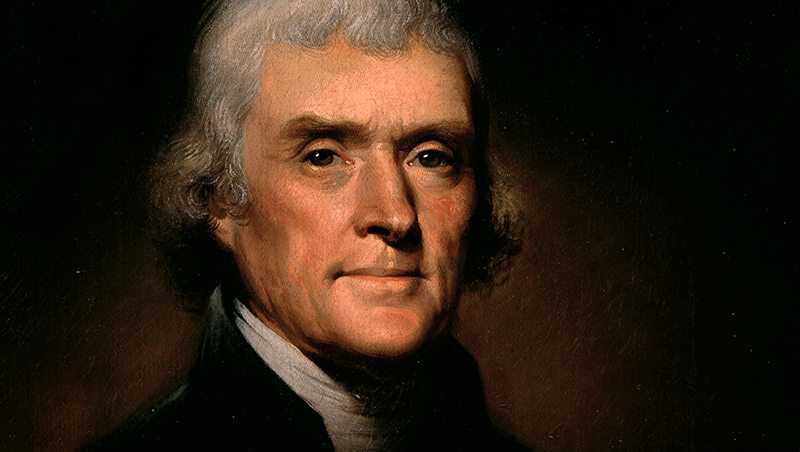On this day in 1801, Thomas Jefferson is chosen the third leader of the United States. The decision constitutes the principal serene exchange of intensity starting with one political gathering then onto the next in the United States.

By 1800, when he chose to keep running for president, Thomas Jefferson had noteworthy political certifications and was appropriate to the administration. The decision featured the progressing fight between Democratic-Republican supporters of the French, who were entangled in their own particular grisly upset, and the ace British Federalists who needed to execute English-style strategies in American government. The Federalists hated the French progressives' overeager utilization of the guillotine and thus were less sympathetic in their remote approach toward the French. They pushed a solid concentrated government, a standing military and money related help of developing enterprises. Conversely, Jefferson's Republicans favored constrained government, unadulterated states' rights and an essentially agrarian economy. They expected that Federalists would desert progressive standards and return to the English monarchical convention.
After a bloodless however terrible battle in which competitors and persuasive supporters on the two sides utilized the press, frequently secretly, as a discussion to flame hostile volleys at each other, the then-difficult and confounding procedure of voting started in April 1800. Singular states booked decisions at various circumstances and in spite of the fact that Jefferson and Burr kept running on a similar ticket, as president and VP individually, the Constitution still requested votes in favor of every person to be tallied independently. Accordingly, before the finish of January 1801, Jefferson and Burr developed tied at 73 discretionary votes each. Adams came in third at 65 votes.
This unintended outcome sent the last vote to the House of Representatives. This allegation and others drove Burr to challenge Hamilton to a duel in 1804 that brought about Hamilton's demise. Two weeks previously the planned initiation, Jefferson developed triumphant and Burr was affirmed as his VP. In his debut address, Jefferson tried to mend political contrasts by thoughtfully pronouncing we are for the most part Republicans, we are for the most part Federalists.
As president, Jefferson made a few concessions to his adversaries, including taking Hamilton's recommendation to fortify the American Navy. In 1801, Jefferson sent maritime squadrons and Marines to stifle Barbary robbery against American delivery. He decreased the national obligation by 33%, procured the Louisiana Territory, and his sponsorship of the Lewis and Clark campaign opened the west to investigation and settlement. Jefferson's first term finished in relative steadiness and flourishing, and in 1804 he was overwhelmingly chosen to a second term.
The imperfect voting framework that was so hazardous in the race of 1800 was later enhanced by the Twelfth Amendment, which was approved in 1804.